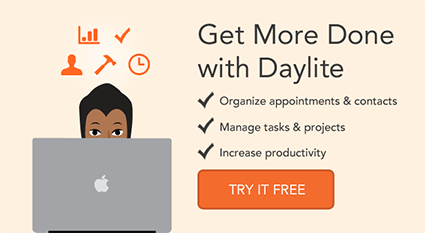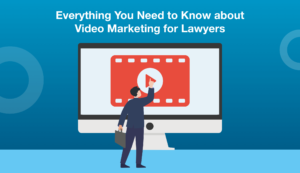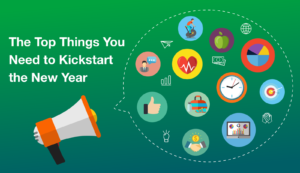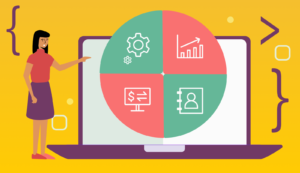So you’ve heard you should get a CRM but you’re not really convinced you need one. Maybe you’re wondering what a CRM even is or what kinda you should be looking for. Whether you’ve heard of a CRM or not, this post should help clear up what it is, what you should be looking for in a good CRM, and give you a clear picture of the benefits you’ll get by using one.
What is a CRM?
A CRM (customer relationship management) is a system and tool for you to manage interactions with your customers. It’s a single place for information to be stored and a system where you can outline your process. A good CRM helps you refine your customer process and work efficiently so you can improve your customer’s experience and increase sales. This is especially important for small business owners and managers because when you already have multiple hats to wear, your customer process should be down pat so it’s one less thing to worry about.
Why do I need one?
For some people, it may seem like the right choice to just keep on doing what you’ve been doing so far. After all, CRMs can take up a chunk of your budget that at first, may not seem worth the investment. There’s also the argument of “if it ain’t broke don’t fix it” and you may be thinking that your current process of manually managing customers is working well enough. I get it. I’ve been there. I used to use the old school method of a “manual CRM” which combined the use of email folders, spreadsheets, a calendar, and post-it notes. It worked (sort of). But it also limited the capacity for growth because the process wasn’t scalable and it turned what could have been a simple process into a long, annoying, complicated chore.
From an email or phone call I had to dig through email folders, scroll through what seemed like an eternity of data in spreadsheets, and flip through handwritten notes and order forms to piece together a picture so I could make my next move. My computer screen was covered in colour-coded post-it notes that were meant to remind me of things, but that only worked if I remembered to read them when they were important. While post-it notes are great to jot things down on, they don’t jump out and let you know when they’re due.
At the time it just seemed like part of my day – the stuff I had to do and keep doing faster if I wanted to get ahead. I didn’t even realize I was missing out on so many more opportunities to increase sales because I was so stuck in my busy routine. I thought I just had to train my brain so my memory was on point. I thought if I remembered to check each post-it note more often I wouldn’t miss out on any reminders. I wanted to increase sales while giving my customers the same level of service but it just didn’t seem physically possible –unless of course, I cloned myself. It wasn’t until after I started using a CRM that I really understood the benefits.
So for those of you out there that are still kickin’ it the old school way like I was and managing clients with a phone, email, pen, and paper, please keep reading. Because once you’ve invested the time to properly incorporate a CRM into your workflow, you’ll wonder how you ever lived without it.
Benefits of using a CRM:
1. Shared info
With a CRM, all the information about your customers is in one place that everyone on your team can access. It’s not on some people’s computers, in someone else’s calendar and some in folders or notes on other people’s desks. You don’t have to ask around when someone last talked to a client or if they have an upcoming meeting scheduled. With a CRM you can say goodbye and good riddance to that annoying process of having to pass around updated spreadsheets, hoping you don’t accidentally save over the wrong copy.
2. Searchable content
You can be great at recording everything in spreadsheets, notes in your calendar, etc., but if that information isn’t searchable, it’s pretty useless when you’re trying to find it. With a CRM that makes all your content searchable, you save yourself time and headaches digging out the information you need when you need it.
3. Easy sorting
So you want to see all the customers in the last 6 months that ordered a specific product or service. If you’re not able to filter your notes, emails, or order forms, good luck getting that done quickly. With a good CRM, you can not only search specific information but you can also filter based on that info which makes grouping things a whole lot easier. So instead of wasting time looking through order forms or searching through emails, you can filter a list, send an email blast in the time that it would take you to manually search through a portion of those customers– leaving you with extra time to look for new clients or finish other things on your to do list.
4. Mobility
Having information on your laptop or notepad at home is only helpful if you’re near your laptop or at home. But anyone running a small business knows that business doesn’t stop when you step out of the office. With a mobile CRM you don’t have to postpone replying to a customer until you’re back to your desk and able to check your notes. You’re able to access the info you need right from your fingertips. Instead of tasks getting bottle necked by limited access to information, you can do things as they come up because you have the info you need with you at all times.
5. Save time and money
By having information in one place that’s easily accessible, you save yourself time and money. More time means you’re able to get more things done. So by using a good CRM, you’re creating a more productive work environment that lets you get more things done, help more clients, and grow your customer base without having to clone yourself or hire an additional person.
6. Growth
Manually managing customers means that you’re capping your growth because you’re only able to manage so many customers with the time and resources you have. By using a CRM you’re able to effectively craft your sales process, saving you and your team time, which means you can serve more customers with the same level of service, in less time. With a good CRM you’re able to scale your customer relationships so you can grow your business efficiently.
7. Peace of mind
Trying to remember all the little details of the who, what, where, when, and why can drive you crazy. Who are you meeting tomorrow? What do you need to remember to ask them? When did you last meet with them and what was it about? For a small customer base you may be fine to do it on your own, but as you grow it’s going to be more and more taxing on your mind and your sanity. By using a CRM you’re able to put your thoughts in a trusted, organized, and central system instead of having to rely on your own memory. This helps you to be more calm and present while you’re with your customers and doing your work because your brain isn’t wasting capacity on trying to remember a bunch of details. You’re able to clear out all that extra “noise” so you can limit your stress and focus on the task at hand.
8. Solid facts for reporting
Digging out stats is difficult when you don’t have all the information in one place. You’re left to rely on hunches or your gut to tell you what service people purchase most, what customers are the most profitable, what customers’ issues eat up the most of your time, etc. Most CRMs come with built in reports or tools within the app that let you easily pull out the stats you need to make informed decisions. Instead of wasting time searching through emails and spreadsheets or building your own graphs, the info you need is right there in a report.
9. More control
A CRM gives you control over your customer information. You can adjust privacy settings to only allow people to see the customer information they need. You can also keep tabs on your team to check when they’ve last touched base with a client. Additionally, when your sales process is set up in a CRM, you can easily modify it as you need and extend that new process across your whole team without having to constantly check-in with them to make sure they’re remembering to follow the new process.
10. Better customer experience
With a CRM you’re able to see the full picture of each customer. It’s easier to get brought up to speed on their history with your company, quickly retrieve important details, and respond to them sooner. When someone on your team is sick, you don’t have to leave your customer hanging in limbo while you wait to hear back from your team member, or put them on hold while you dig through notes to try to piece together a picture of what’s happening. All the information is in one place so you’re able to address their needs and react right away, giving them a better customer experience.
So whether you’re just starting a business and need a way to manage your first few clients, or you need a tool to help scale your processes as your client list expands, there’s many good reasons to consider looking for the right CRM. It’s a win-win. You’re more organized and have more control over your business, and your customers get a better experience.




